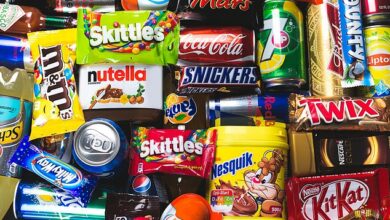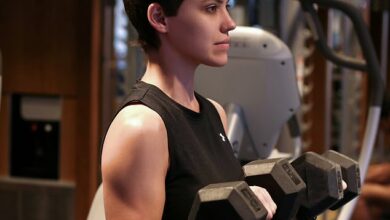I’m a Dietitian Who Ate Ultra-Processed Foods for a Month to Prove It’s Not That Bad – the Results Were Shocking
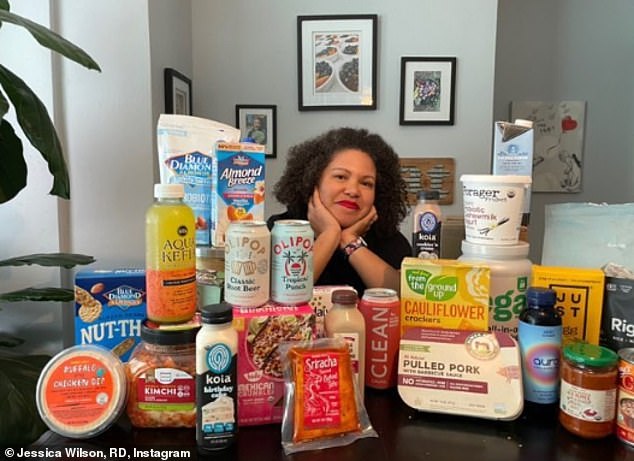
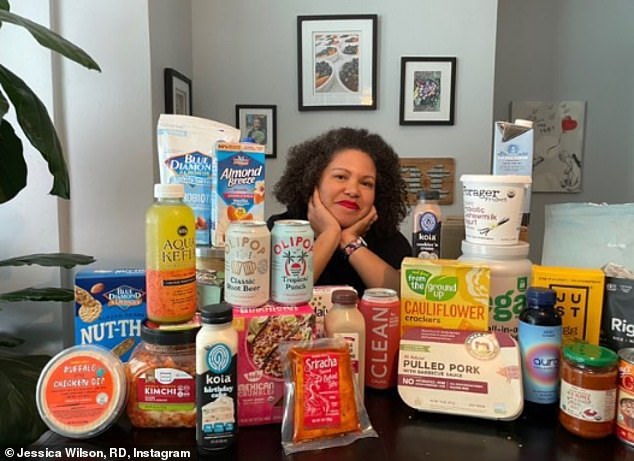
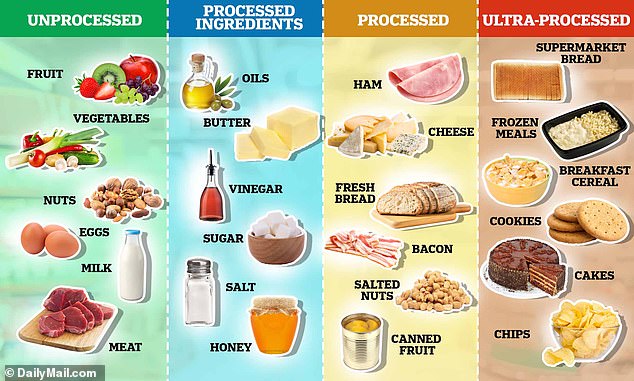
In recent years, extremely processed foods have been linked to everything from obesity to cancer.
But Jessica Wilson, a registered dietitian in California, is among a large group of health experts who believes the evidence is not so clear-cut.
She and many others argue that the category of “ultra-processed” foods is too broad and doesn’t distinguish between products like bread and candy, or almond milk and soda.
Wilson literally put her money where her mouth was, conducting a month-long experiment to measure the effects of a diet consisting mostly of processed foods on her body and mind.
She found that eating this way gave her more energy, made her feel fuller for longer and, she said on Instagram, “felt a lot better.”

Ms. Wilson’s diet consisted of 80 percent processed foods, like those pictured above, for a month. She said the category of processed foods is broad and may include items that many Americans rely on for their nutrition
Wilson ate a diet consisting almost entirely of processed foods for a month. These included the many different definitions of ultra-processed—including prepackaged, frozen meals, takeout, and foods with more than five ingredients.
Her intention, it seems, was to prove the definition of ultra-processed foods wrong. So she ate things like tofu, oat milk, and grain-free granola, which contain dozens of ingredients but could be considered healthy, and familiar favorites like hot dogs.
“How come we have to avoid this entire category of foods,” says Ms. Wilson told TIME.
While most dietitians speak out against processed foods, Ms. Wilson is not alone in questioning the confusing guidelines.
The most widely recognized way to classify food is called NOVA. A good rule of thumb is that if your food contains ingredients that you don’t recognize or can’t pronounce, it may be processed.
There is a lot of “room for interpretation” in these guidelines, Carolyn Williams, a registered dietitian, previously told DailyMail.com.
For example, mass-produced multigrain breads could be considered ultra-processed even though they are a good source of fiber, vitamins and other nutrients that most dietitians would recommend in their diets, Williams said.
Clearly, she explained, multigrain bread doesn’t fall into the same nutritional category as Mountain Dew, which is also highly processed but low in nutrients and high in sugars.
So not all ultra-processed foods are the same and therefore may not have the same health effects.
To close the gap, Ms. Wilson has committed to cutting 80 percent of her diet from ultra-processed foods by September 2023. This includes the typical bogeymen like pizza and hot dogs, as well as vegan cheese, oat milk and grain-free granola.
The remaining 20 percent came from vegetables, fruits, eggs, nuts and seeds.
At the end of the month, the dietitian said she felt better, had more energy and was less hungry than usual, because she was eating mostly processed foods.
She noted in a summary of the diet that a “distinct gap” had developed in the belt she wears around her waist when walking her dog during the month, suggesting she may have even lost weight.
These results are likely evidence that she wasn’t eating enough calories before she started the diet, Ms. Wilson said. Eating these prepackaged foods actually gave her the amount of calories she needed to get through her day with energy, she suggested.

The NOVA classification system for processing foods sorts things into four categories based on their ingredients and their manufacturing process. Some dietitians say these guidelines leave room for interpretation
Yet many dietitians still believe that processed foods are linked to weight gain and other adverse health effects.
Processed meat containing nitrates – a common additive in many sausages and cold cuts – has been linked to an increased risk of colon and stomach cancer, according to a US study. MD Anderson Oncologists.
A 2019 study conducted by dietitians from the National Institutes of Health gave 20 people a diet of 80 percent ultra-processed foods for two weeks, and a diet of unprocessed foods for two weeks.
For example, the processed breakfast might consist of a bagel and turkey bacon, while the unprocessed breakfast might consist of oatmeal and fruit.
At the end of the study, the researchers found that people on the processed diet ate an average of 500 more calories than people on the unprocessed diet, causing them to gain weight.
In one of the most famous studies on processed foods, Dr. Chris van Tullken, a virologist and professor at the University of College London, made 80 percent of his diet processed foods for a month.
Eventually, he had gained weight, was constipated and said scans showed worrying changes in his hormone levels and brain biology. ‘In just a few weeks, I felt like I had aged 10 years. I was achy, exhausted, miserable and angry,’ Dr. van Tullken wrote in a column for DailyMail.com.
Ms Wilson said it was possible that both Mr Van Tullken’s study and hers were true.
She says it’s important to realize that there are many ways to use processed foods, and if you make them all seem bad, it makes it harder for people to get the cost-effective nutrition that some processed foods provide.
She added: ‘Both experiences [sic] be real. The audience deserves to hear more than one version of a story,’ Ms. Wilson said.



